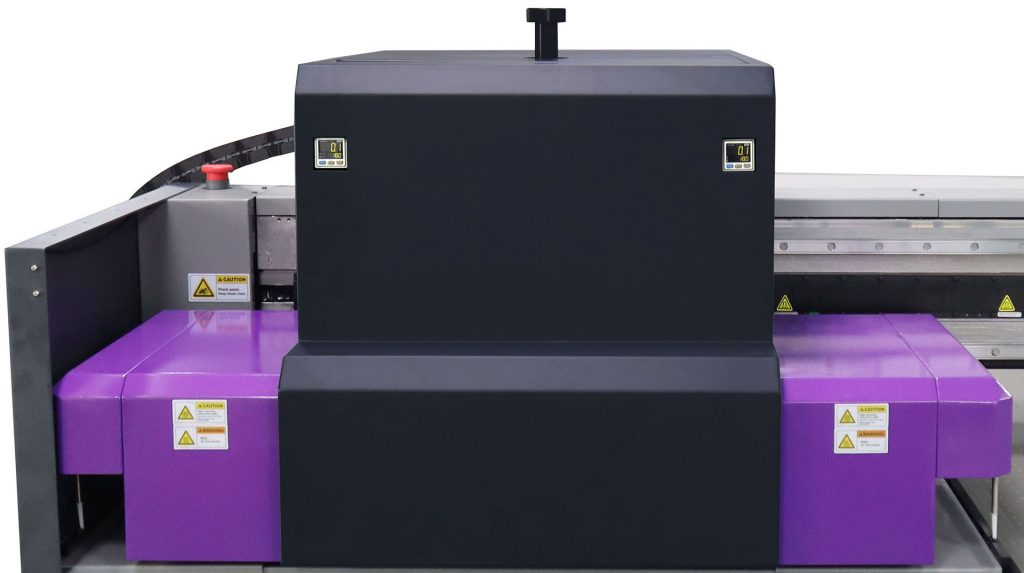UV Flatbed Printer: Key Features and Capabilities
UV Flatbed Printer: Key Features and Capabilities
In the realm of digital printing, UV flatbed printers have emerged as a game-changer, revolutionizing the way images and designs are printed onto various surfaces. These printers utilize ultraviolet (UV) curing technology, which instantly dries the ink as it is printed, allowing for exceptional print quality, durability, and versatility. This article delves into the key features and capabilities of UV flatbed printers, highlighting their unique advantages and applications.

1. Introduction to UV Flatbed Printers
UV flatbed printers are specialized printing devices designed to print directly onto flat or slightly curved surfaces. They employ UV-curable inks that solidify when exposed to ultraviolet light, enabling instant drying and minimizing the risk of smudging or running. This technology allows for precise and detailed printing on a wide range of materials, including glass, metal, plastic, wood, ceramics, and even some textiles.
2. Key Features of UV Flatbed Printers
2.1 UV-Curable Inks
The cornerstone of UV flatbed printers is their use of UV-curable inks. These inks are formulated to cure (or dry) rapidly when exposed to UV light. This instant curing process offers several advantages:
Immediate Drying: Prints are dry and ready for handling or further processing immediately after printing, eliminating the need for lengthy drying times.
Enhanced Durability: UV-cured inks create prints that are highly resistant to fading, scratching, and chemical exposure, making them ideal for outdoor applications and products subject to wear and tear.
Expanded Color Gamut: UV inks can achieve a broader color range and higher color saturation, resulting in vivid, eye-catching prints.
2.2 Versatile Printing Capabilities
UV flatbed printers can accommodate a wide variety of substrates, ranging from rigid materials like glass and metal to flexible ones such as certain plastics and textiles. This versatility stems from the printer’s ability to precisely control ink deposition and cure it instantly, regardless of the material’s surface properties.
2.3 High Resolution and Precision
Most UV flatbed printers offer high-resolution printing capabilities, with some models achieving resolutions exceeding 600 dpi (dots per inch). This level of detail ensures that prints are sharp, clear, and visually appealing, making UV flatbed printers suitable for applications requiring intricate designs or fine text.
2.4 Large Print Area
UV flatbed printers are available in various sizes, with some models capable of printing on surfaces up to several feet in length and width. This large print area makes them ideal for producing large-format graphics, signs, and promotional materials.
2.5 Environmental Considerations
UV-curable inks are generally more environmentally friendly than traditional solvent-based inks. They emit lower levels of volatile organic compounds (VOCs) and can be formulated to be free of hazardous substances, reducing their impact on both the environment and printer operators.
3. Capabilities and Applications of UV Flatbed Printers
3.1 Signage and Graphics
UV flatbed printers are extensively used in the signage and graphics industry for producing high-quality, durable prints for outdoor and indoor applications. From storefront signs to vehicle wraps, UV flatbed printers can handle a variety of materials and sizes, delivering vibrant, long-lasting graphics.
3.2 Product Decoration and Customization
The ability to print directly onto a wide range of materials makes UV flatbed printers ideal for product decoration and customization. From personalized phone cases and promotional items to decorative panels and furniture, these printers enable manufacturers and marketers to create unique, eye-catching products.
3.3 Packaging and Labeling
UV flatbed printers are also used in the packaging industry for printing high-resolution graphics and text onto boxes, containers, and labels. The durability of UV-cured inks ensures that packaging remains visually appealing throughout the distribution and retail process.
3.4 Architectural and Interior Design
In architectural and interior design applications, UV flatbed printers can print custom designs and patterns onto glass, metal, and other materials used in building facades, partitions, and decorative elements. This allows for the creation of unique, visually striking designs that are also durable and easy to maintain.
3.5 Fine Art and Photography
UV flatbed printers have even found a place in the fine art and photography worlds. Artists and photographers can use these printers to create high-quality, archival prints on a variety of media, including canvas, metal, and acrylic. The ability to control ink deposition and achieve fine detail makes UV flatbed printers a valuable tool for reproducing artwork and photographs.
4. Conclusion
UV flatbed printers have transformed the printing industry by offering a combination of versatility, precision, and durability that is unmatched by traditional printing methods. Their use of UV-curable inks allows for instant drying, expanded color gamut, and enhanced print quality, making them ideal for a wide range of applications. From signage and product decoration to packaging and fine art, UV flatbed printers are proving to be a valuable asset in numerous industries, enabling the creation of unique, high-quality prints on a variety of surfaces. As technology continues to advance, it is likely that UV flatbed printers will become even more prevalent, further pushing the boundaries of digital printing.
